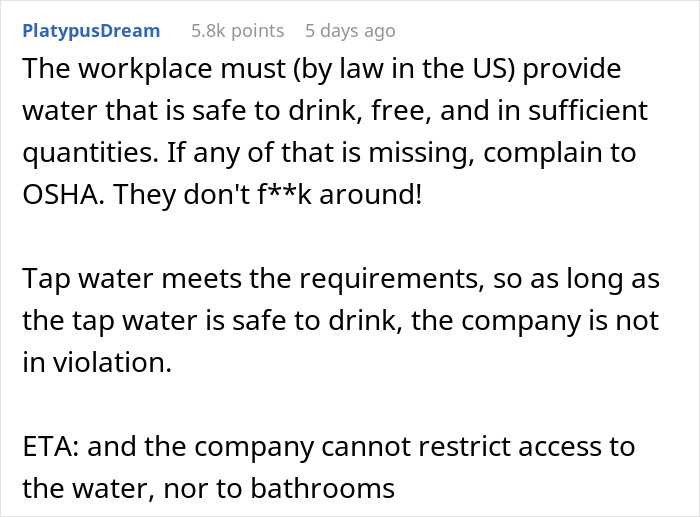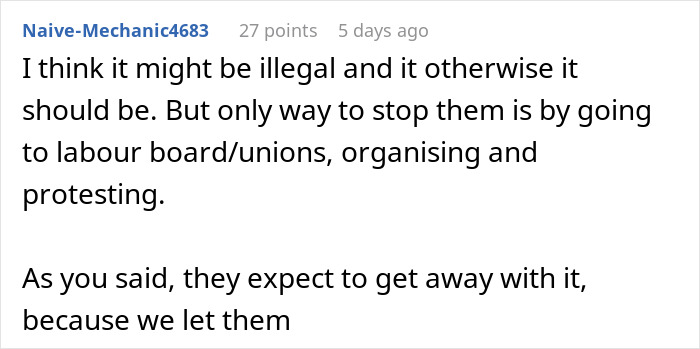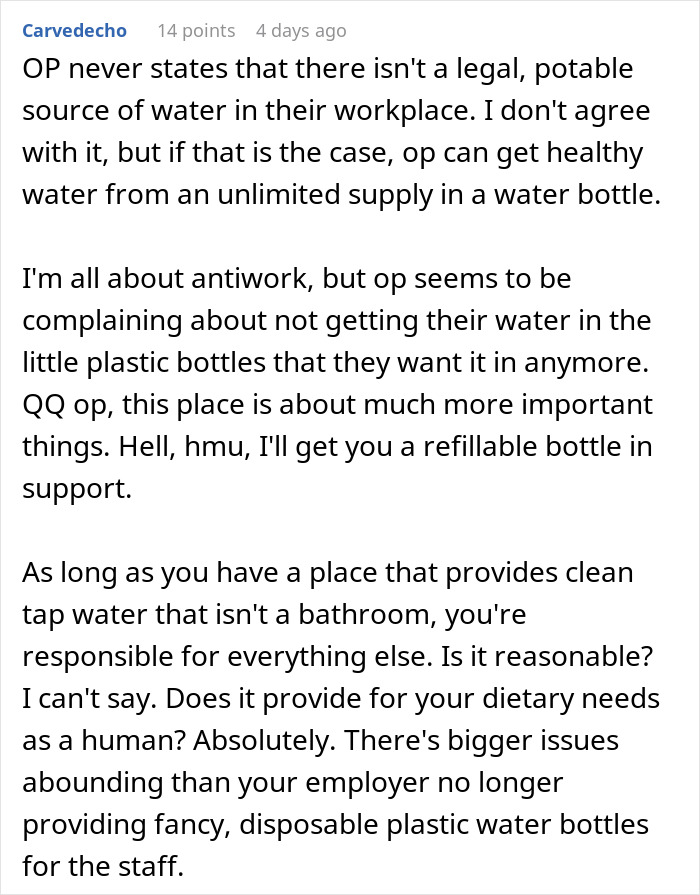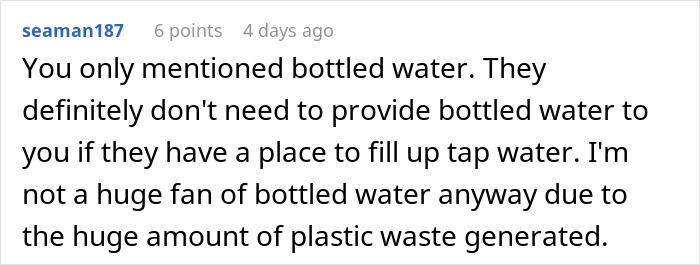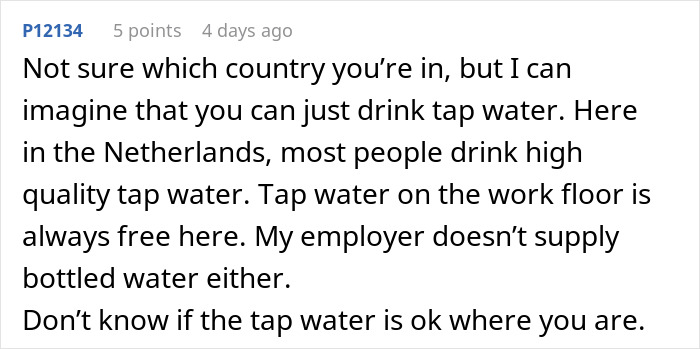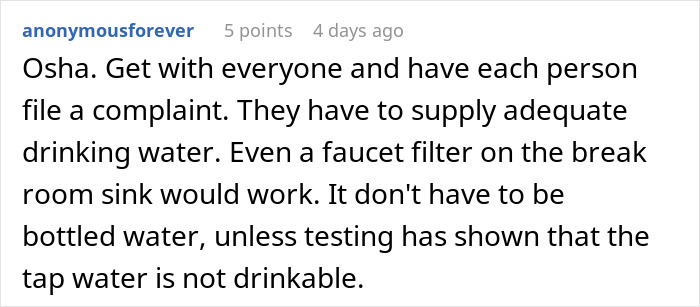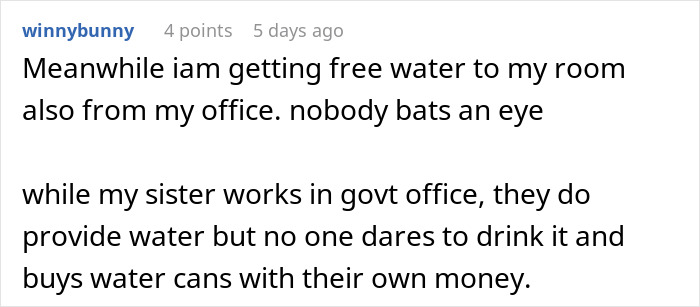People online have shared many absurd things their bosses have said and done. From asking them to work on the weekend to showing up to your ex-employee’s new workplace: many absurd stories have graced the internet. However, this one not only might be absurd but illegal as well.
A few days ago, netizen u/radiantxflower shared how their management issued a new policy for its warehouse workers. Citing sustainability issues, the company claimed they would no longer give its employees free bottled water. People started debating: is this an OSHA violation or is this perfectly reasonable if the tap water is suitable to drink?
The employees in this company could enjoy free bottled water, that is, until the boss one day decided it was “unsustainable”
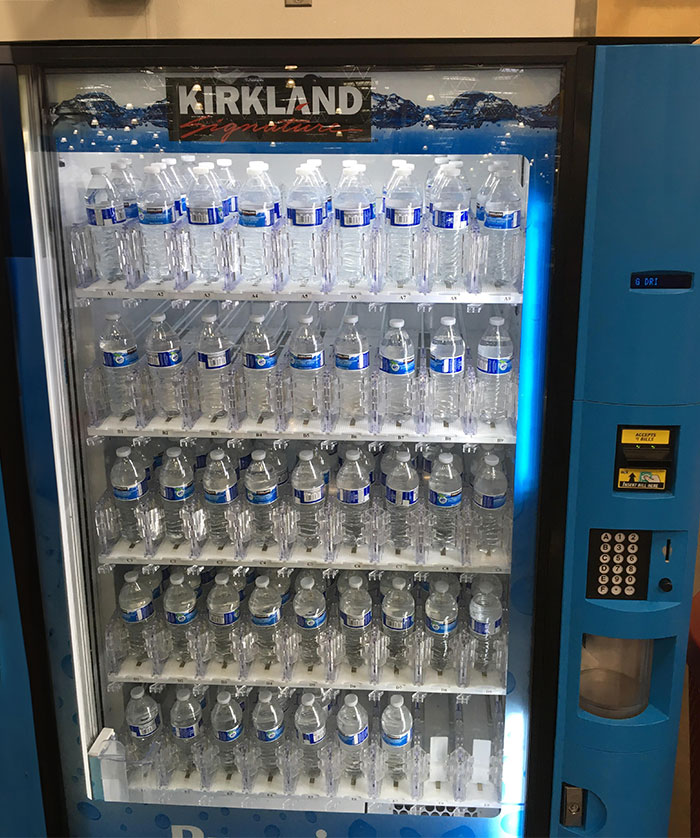
Image credits: Mietski (not the actual photo)
One employee shared this story online and prompted an interesting discussion
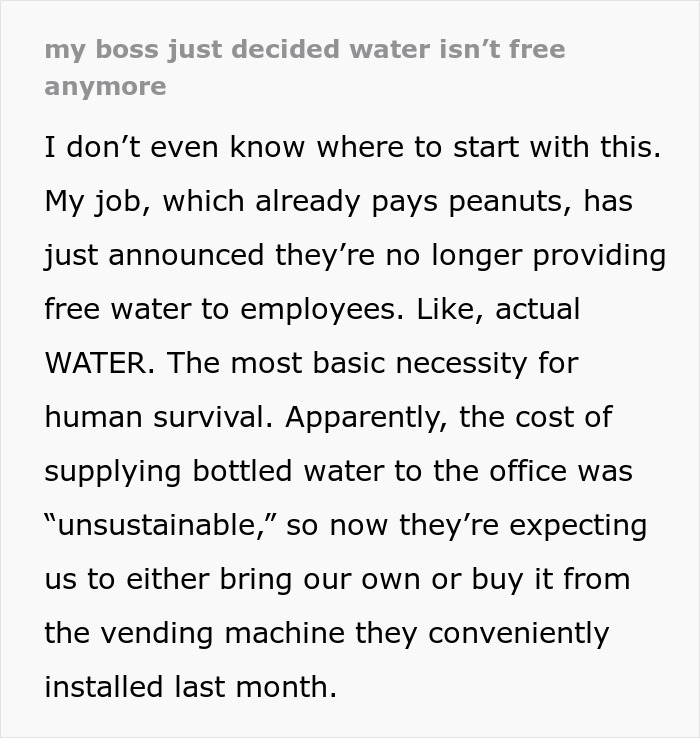
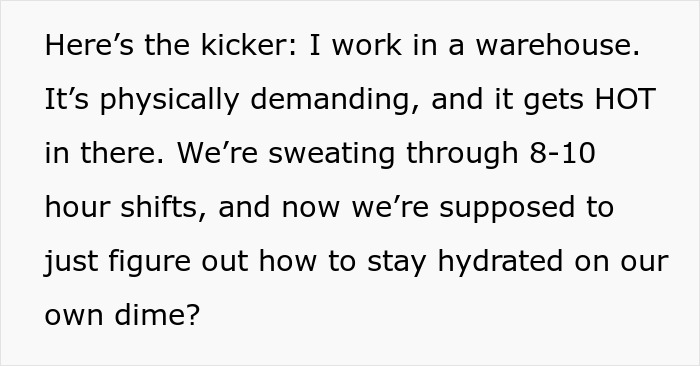
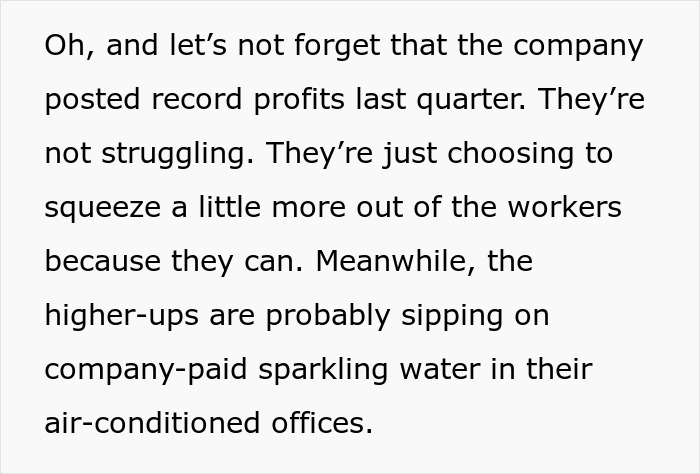
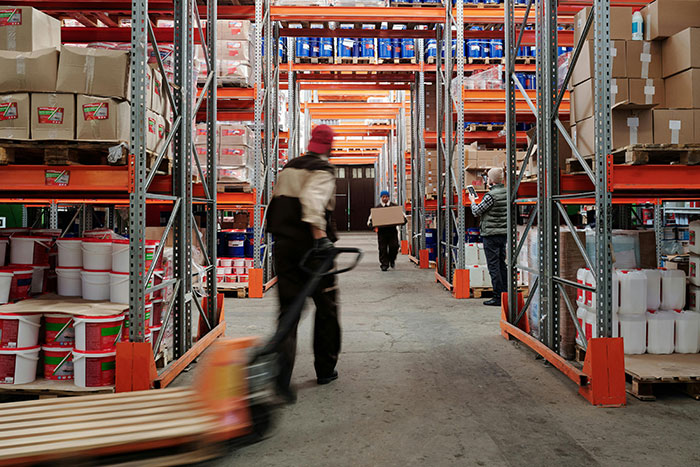
Image credits: Tiger Lily (not the actual photo)
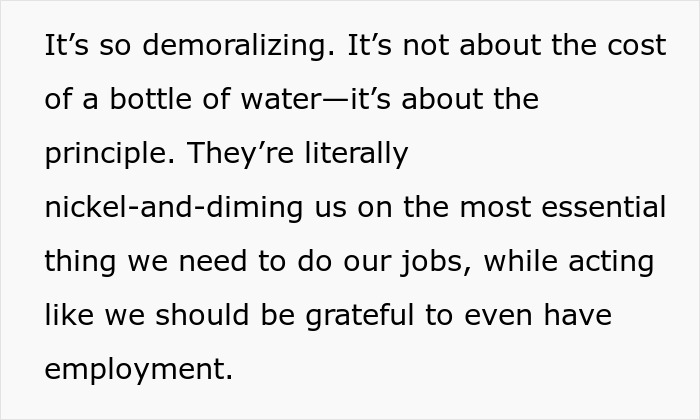
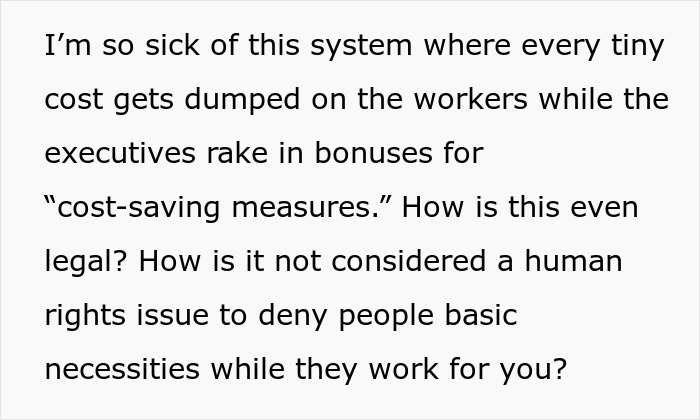
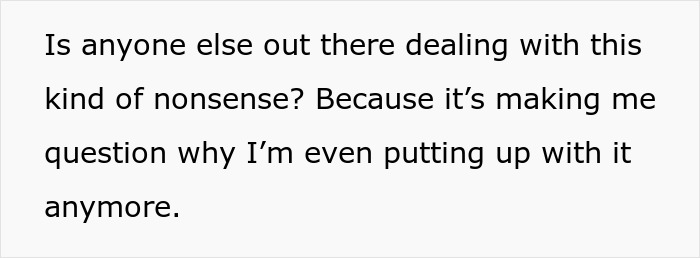
Image credits: radiantxflower
OSHA standards require that workers have drinking water from a drinking fountain, a covered container, or a single-use plastic bottle
Many commenters were right to say that taking away drinking water from employees would be illegal. OSHA standards demand that employers have available potable water to their employees.
“Potable water includes tap water that is safe for drinking,” their website claims. “Employers cannot require employees to pay for water that is provided. An employer does not have to provide bottled water if potable water is available.” The water can also come from a drinking fountain, a covered container, or a single-use plastic bottle. Water from a sink in the bathroom isn’t up to OSHA’s standards. The water outlet has to be specifically intended for drinking water only.
Tap water usually is fine, but that depends on local water quality. Tap water isn’t safe to drink everywhere in the U.S. Some states where water utility customers reported the best quality tap water in 2023 were Kentucky, Washington, New York, Oregon, and Kansas. The states with the worst quality tap water reportedly were Alabama, Maryland, Oklahoma, New Mexico, and Texas.
If the water bottles in the vending machine are the only source of water the employees can get to, the company in this story will be in big trouble. If there is, however, tap water that’s safe to drink, the workers will probably have to make do with that.
The plastic pollution caused by bottled water is unsustainable for the planet
The author writes how the company decided that providing employees with bottled water was “unsustainable.” While the OP interprets that as “unsustainable” for the company, it is unsustainable in the ecological sense.
In 2023, Americans consumed 15.94 billion gallons of bottled water. CNN reports that experts predict bottled water sales to almost double by 2030. That means double the amount of plastic in our landfills and oceans from bottled water alone.
But you might say: “Water bottles are totally recyclable! I toss them into my curbside recycling bin and they get transported to a material recovery facility (MRF) where they become other bottles for drinking water.” That’s true to some degree. Although the International Bottled Water Association reports that “all bottled water containers are 100% recyclable,” the percentage of actual bottles that get recycled is far less.
The U.S. Environmental Protection Agency (EPA) says that 29.1% of PET bottles were recycled in 2018. Other sources claim it’s 12%, but the point is the same: less than a third of the plastic generated by the bottled water industry gets reused. That’s not to say that you should stop recycling your water bottles. While they don’t all get recycled, they are “down-cycled.” That means that they become a lower-quality kind of plastic packaging.
It’s good to some degree, but the fact is that we can’t recycle it forever. As Dr. Trevor Zink and Dr. Roland Geyer write, the belief that recycling diverts plastic from landfills is false. “[It] ignores the fact that, even in the most ideal recycling cases, material degrades in quality, diminishes in quantity (yield loss), or both during each use and recovery (i.e., collection and reprocessing) cycle.”
So, if you (or the company, in this case) are trying to save the planet, having your reusable/refillable water bottle is always best. That’s why a water fountain would probably be the most planet-friendly choice for any workplace.
People reacted in different ways: some urged the worker to call the local labor department, others asked why they can’t just drink tap water
